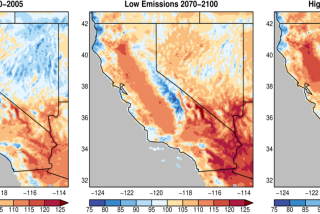Exxon Seeks to Keep Spill Data Secret Before Cases Go to Trial
- Share via
ANCHORAGE — Exxon Corp., Alyeska Pipeline Service Co. and other defendants in more than 150 lawsuits resulting from the Exxon Valdez oil spill are asking that all evidence be kept secret until the cases go to trial.
The order, requested earlier this month, has come under fire from the state and other plaintiffs, who contend that Alaska’s legislative responsibilities and the public’s right to know demand the release of such information.
Superior Court Judge Brian Shortell is scheduled to rule on the secrecy order next month. Violating the secrecy order could result in contempt charges.
As requested by the oil companies, the order would bar all parties from disclosing virtually anything learned during the discovery phase of the litigation. It would apply to legal motions, corporate records and sworn statements of company executives.
Attorneys said that the lawsuits may not go to trial for a decade and could be settled out of court.
A secrecy order could prevent the public from learning exactly what caused the March 24 wreck of the Exxon Valdez, or why efforts to contain and clean up the nearly 11 million gallons of crude oil from Prince William Sound failed.
Even the state would be forbidden to disclose what it had learned about the spill. Critics of the request said that would impair the ability of lawmakers and environmental officials to do a better job of regulating the industry.
National Wildlife Federation President Jay Hair called the proposed order a “blatant and outrageous attempt to hide the facts from the American people.”
“These oil companies are terrified that the public could learn the complete details about what they have done,” he said.
John Anderson, a management consultant for Exxon, said that the release of large quantities of internal business records could result in disclosure of trade secrets--even if the individual documents contained no secrets.
Competitors could piece together millions of bits of information, creating a mosaic of Exxon operations that would betray trade secrets, Anderson said.
More to Read
Sign up for Essential California
The most important California stories and recommendations in your inbox every morning.
You may occasionally receive promotional content from the Los Angeles Times.













